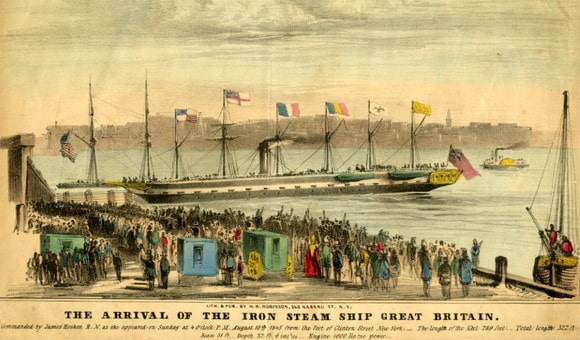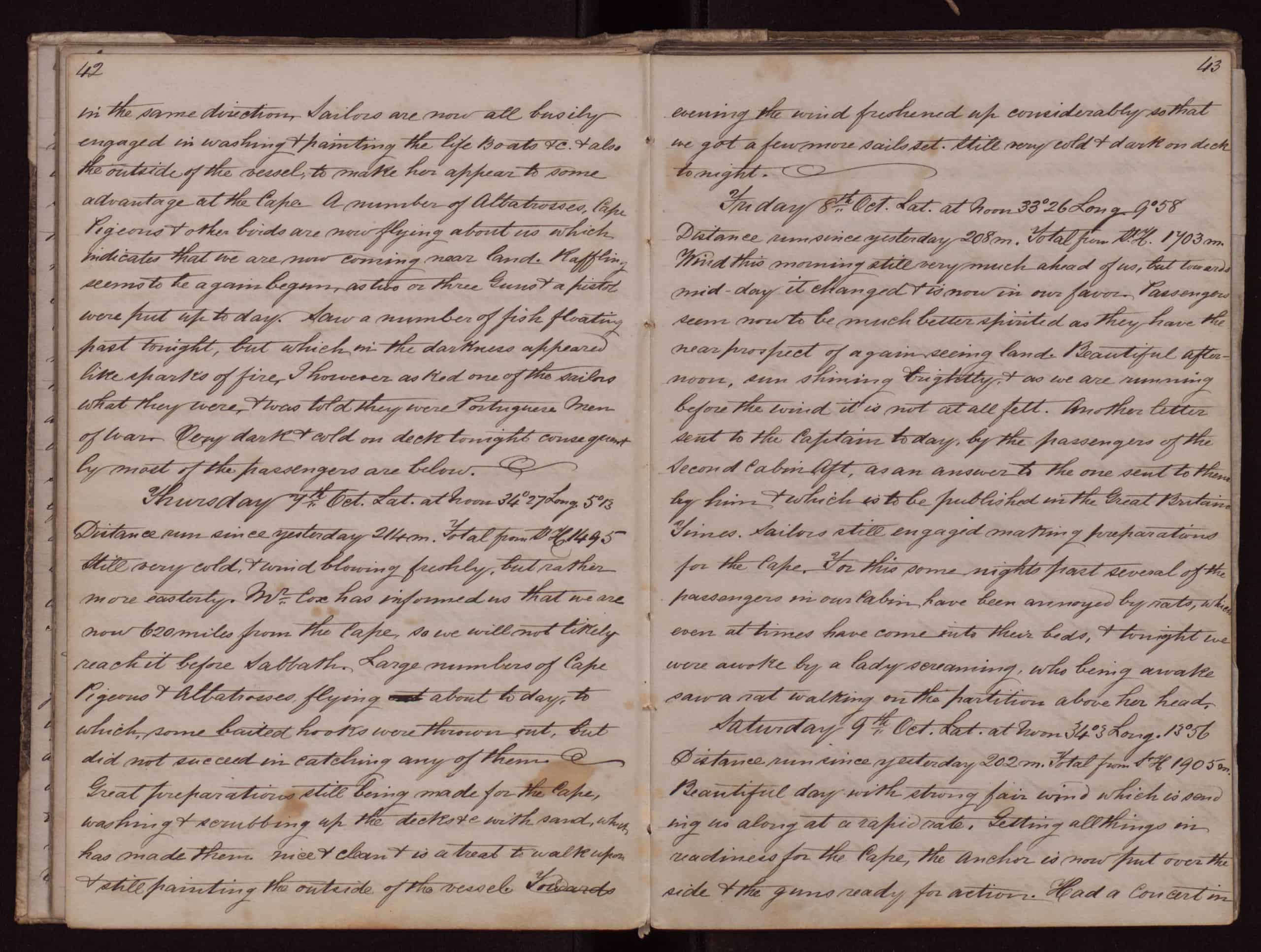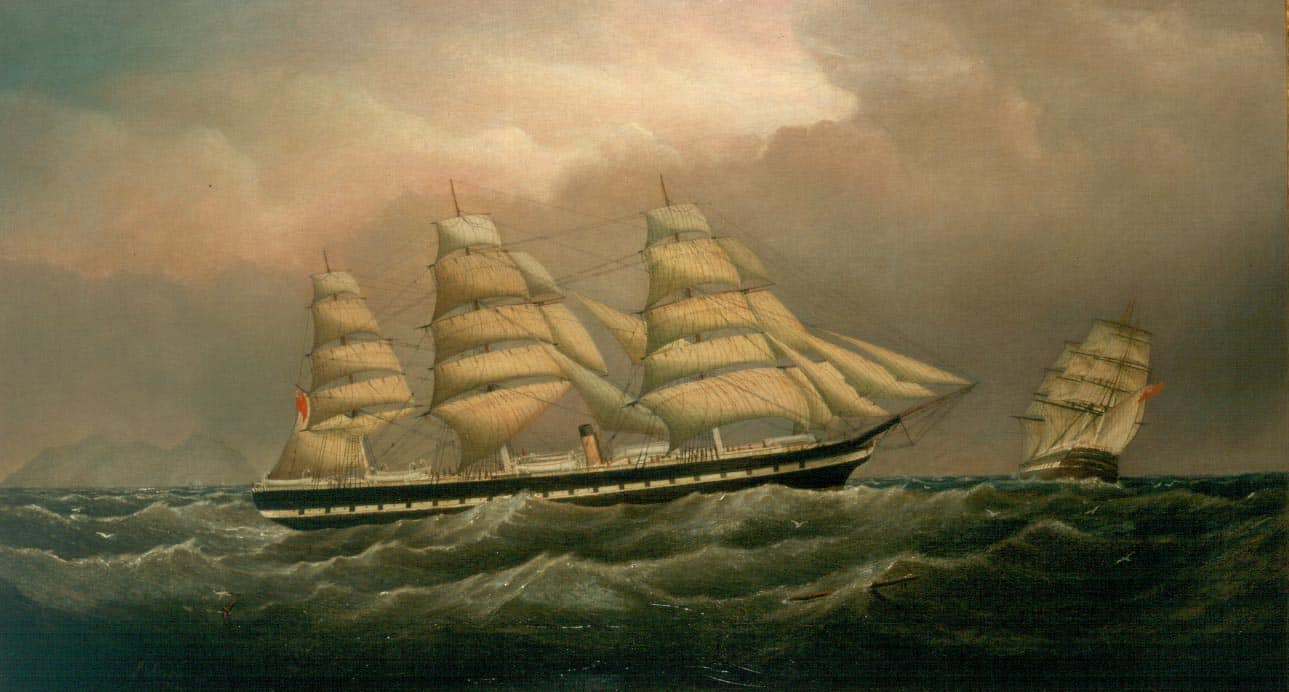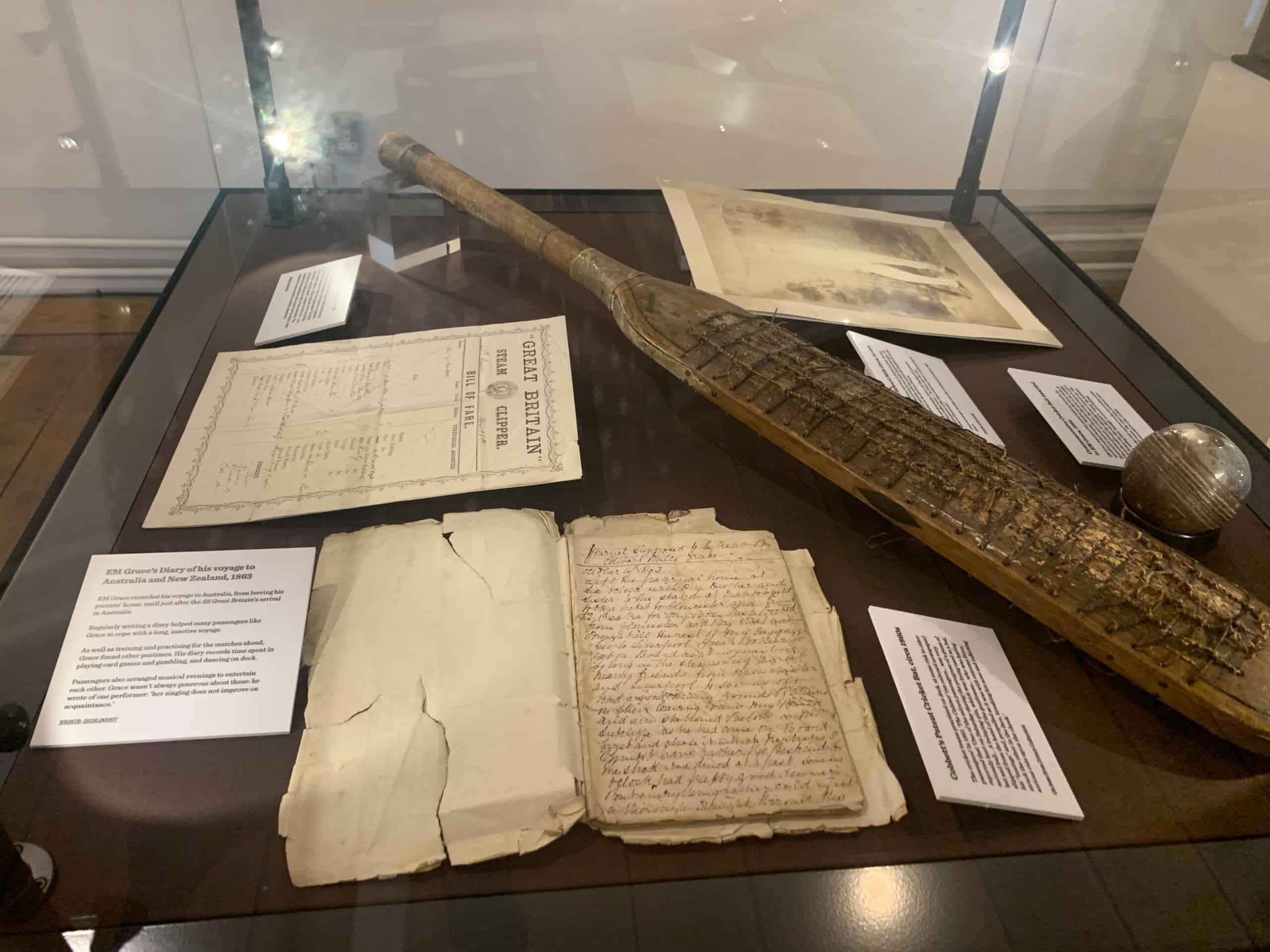Susan Mary Crompton
A Compassionate People Watcher
For her first class passengers, the SS Great Britain offered luxury of the highest level. The ship’s passengers travelled for a variety of reasons: for business; to start new lives; and even for romance. Susan Mary Crompton began her married life on the ship at the start of a honeymoon visit to Europe. After travelling on the ship she went on to tour France, Spain and Portugal studying wine and oil-making.
With new husband Joseph she travelled from Melbourne to Liverpool in 1866. She loved watching the sea and made friends with a variety of people on board, from the Captain to the youngest children.
Mary was rarely bored, even though their journey lasted 66 days.
As well as writing in her diary she organised entertainment for fellow passengers.
Real-Life Drama on Board
Her descriptions of the characters, habits and eccentricities of passengers and officers on board the SS Great Britain form a large part of her diary and show her compassionate character and interest in other people.
Later in life Mary worked with her sister helping poor and destitute children. In World War I she was made Justice of the Peace, one of the first women in South Australia chosen for the office.
On 24 June 1866 she writes:
“We are beginning to see the rats, one came into my cabin the other night as I was going to bed, I jumped onto the berth and waited till Joe came down, then he and one of the stewards had a grand rat hunt but the gentleman escaped through a hole. Mrs Fenwick was wakened by one biting her toe nails and Jane Cumming has had a new stocking eaten by another.”
She records the tragedies of the long voyage and writes about death and birth on 1 July 1866:
“Another little baby this morning. Mrs Austin’s poor baby died about 10 o’clock, she has been very ill all this week and early this morning she was seized with convulsions which continued until she died: she was a nice little thing of five months old, with long curly brown hair. I never saw a child with so much at her age. A women belonging to the second cabin had twins.”
And another sad event later that month, 12 July 1866:
“Last night a poor man was lost, he was seen about 12 o’clock but no one knows anything of him since it is supposed that he jumped overboard: he has been very quiet and melancholy ever since we sailed: he was a German in the steerage.”
Susan Mary Crompton’s SSGreat Britain diary and letters are available to view in the Brunel Institute, alongside the SS Great Britain.






